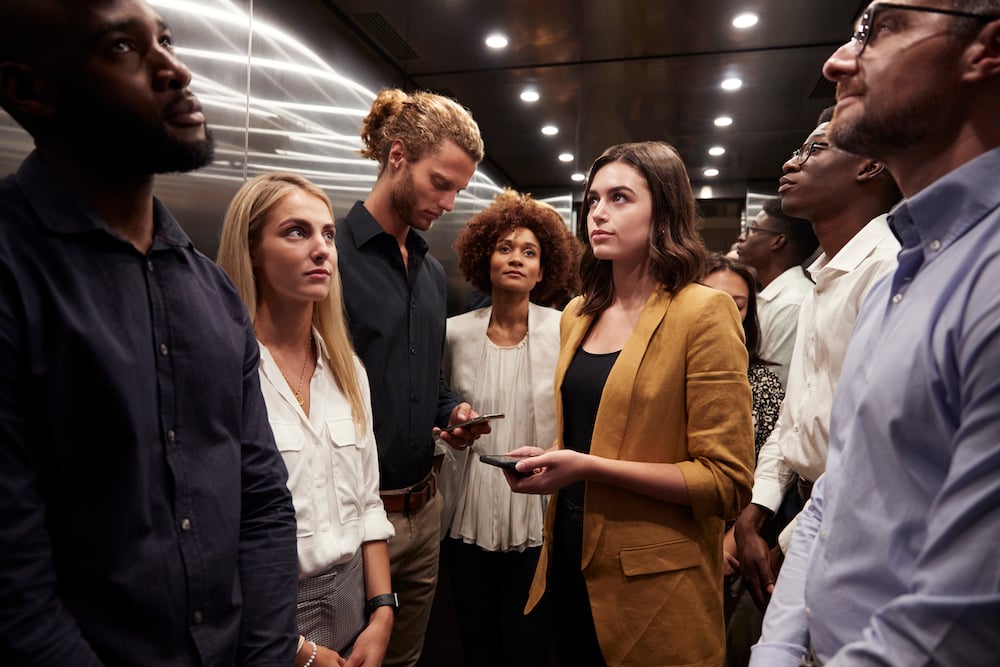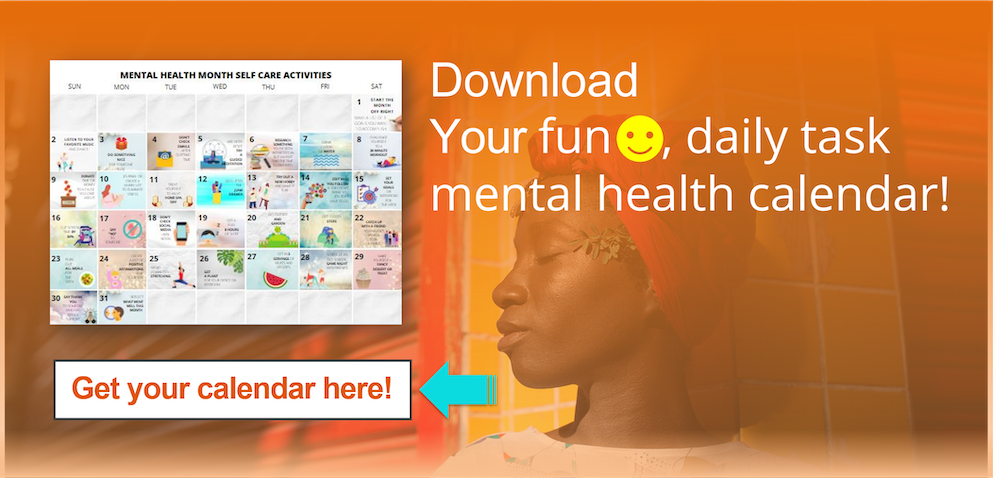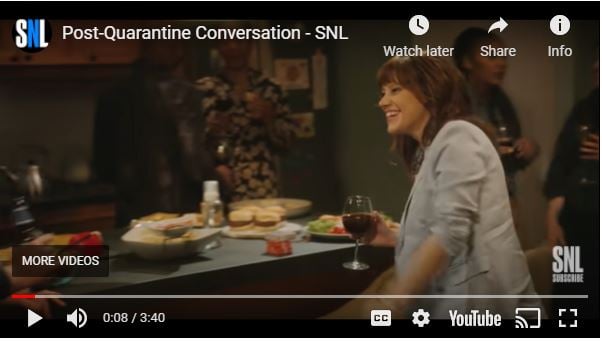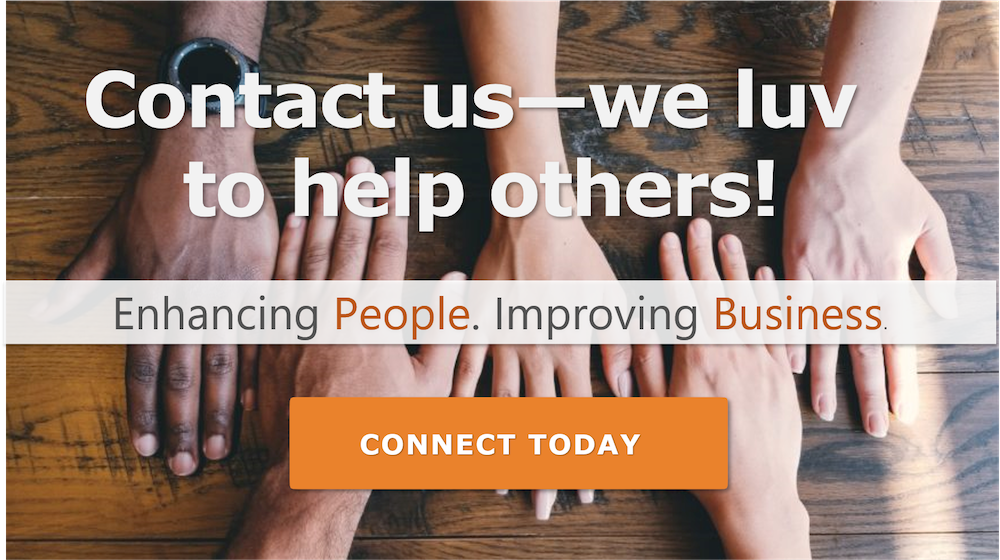Getting Your Groove Back—Post Shelter in Place
If you were stranded alone on an island, how long would it take before you forget how to interact with other people? Would you forget how to be engaging, or how to hold up your end of a conversation, or make small talk? Would you remember how to start a conversation or, for that matter, gracefully end one?
How long does it take for learned, casual social interaction to become awkward after isolation, and why do we seem to forget how to do it?
According to a survey conducted by the American Psychological Association (APA), A majority of adults (82%) said they never imagined the coronavirus pandemic would last this long.
“Nearly half of Americans (49%) said they feel uneasy about adjusting to in-person interaction once the pandemic ends.”
Similarly, almost half of the adults (46%) said they do not feel comfortable going back to living life like they used to before the pandemic. Similar proportions of Americans agreed with this statement regardless of whether they had received a COVID-19 vaccine.
Extroverts, bubbly personalities, the person who is instant friends with everyone, people who never felt awkward on their first day of high school or… ever, are finding themselves uncomfortable in social situations.
And millions of people are feeling anxious about returning to the workplace where social pleasantries are expected. Team meetings, birthday lunches and coffee breaks are all moments that you are expected to interact with the other people around you. You can’t turn off your camera to regroup or mute the microphone. You must listen to the other person and respond appropriately.
While some have found isolation to be a freeing and welcoming experience, many more became overwhelmed by loneliness. Now they feel like they have to relearn how to sit in a room and interact with another human being.
Have You Become Socially Awkward?
People feel awkward in a variety of situations and for many different reasons. Even people who are comfortable in a social environment have had moments where they feel awkward or uncomfortable.
After a year of limited contact with other people, it’s normal to have developed a sensitivity at the thought of actively participating in a typical work environment.
Are you wondering if you’ve developed social awkwardness? Verywell Mind recently published an article listing behaviors that indicate you may need to brush up on your social skills. They include:
• Feeling like you have become oversensitive or hypervigilant
• Not being able to understand subtle aspects of social situations or how to behave
• Doing things that seem inappropriate, like oversharing during a conversation
• Overreacting to what other people do
• Misinterpreting the intentions of others
• Feeling unusually self-conscious
• Making excuses for doing things such as saying you are too tired or don’t feel well
• Choosing solitary activities over social activities, like wanting to watch Netflix instead of answering a phone call from a friend or going to a movie
There is a perfectly reasonable, scientific explanation for why this happens.
Why Your Social Skills Tanked
There’s a reason you might be feeling socially “rusty.” It turns out the part of your brain responsible for memory, and verbal recall, the amygdala, shrinks with prolonged periods of isolation. With diminished capacity, the levels of hormones associated with stress and social bonding are reduced, leading to cognitive decline, dementia, and depression.
“Loneliness is a discrepancy between what you want and
what you have in your relationships” - Cacioppo
A LITTLE COMEDY RELIEF HERE, SNL DID A PARIETY ABOUT THIS VERY TOPIC
NOTE: This SNL clip contains some expletives, watch at your own discretion.
After a year in isolation, it will take more than COVID-19 vaccination to make everyone eager to return to the workplace. There has been a lot of fear and anxiety because of the risk of illness and death, and people will be reluctant to let go of that fear because it has kept them safe during the pandemic.
Being at home in familiar surroundings offers a sense of security, whereas reentering an unfamiliar world leaves you feeling exposed and vulnerable. At home, there is no pressure to physically, emotionally or mentally prepare for your day.
You don’t need to look presentable (unless you have a Zoom meeting) or participate in idle chitchat when someone stops at your desk. You have grown accustomed to isolation and, in fact, may actually prefer it.
The Dark Ages
You are not alone. It’s possible you, along with many other people who are feeling scared or unwilling to re-enter post-pandemic society, are suffering from cave syndrome.
A psychiatrist in Florida coined the term to describe people who prefer not to go back out into society. It’s not that they suffer from social anxiety or are shy or introverted; it’s a general discomfort at the idea of being back in the same space with other people.
Those who are not uncomfortable with social interaction are still ambivalent about returning to the office. Although they like people, they have enjoyed the respite from a competitive office where they may be judged for their outfit, hairstyle or opinions.
Those who suffered from social anxiety before the pandemic are particularly fearful about reentry into society. It feels better to retreat deep into their cave than face the fears in life.
Does having cave syndrome mean that you are experiencing emotional distress? It depends. If you’ve gone so far back into your cave that you can’t see the light of day, you are likely losing your ability to cope in the world. When we face life, work through anxiety, and do things that make us uncomfortable, we grow.
Getting Your Groove Back
Nothing feels right. People seem weird. Communication feels like a struggle.
What “normal” should look like will vary by person. Mask wearing, social distancing, and vaccinations can be awkward conversations to have, especially when people’s views differ from your own.
How do you respect other people’s opinions and manage conversations when you disagree on COVID-19 best practices?
How do you greet people? What do you talk about? How do you know the conversation is over?
Take heart that the readjustment period won’t take long. As social creatures, humans are destined to interact, and that interaction becomes easier when they have shared experiences.
7 ways to ease the socially awkward burden of reentry into society:
• Skip the email and pick up the phone to maintain communication
• Joke about the awkward situation (end a conversation by saying, “ so is this how we say goodbye these days?” etc.)
• Pay attention to what is being said and ask open-ended questions
• Begin socializing with people you knew well
• Limit the amount of time you visit at first
• Show compassion to yourself and others
• Realize people are relearning how to cope
It is important to realize that COVID has changed many of our social norms. Old habits die hard, and from them, new ones are formed. It’s ok to let the old ones go if the new way is working better.
Don’t be afraid to put yourself out there. As Susan Jeffers said, “The only way to get rid of the fear of doing something is to go out and do it. Feel the fear and do it anyway.”
How can you assist those that need a little more help to get their groove back? Promote the use of your organization’s Employee Assistant Program within your workplace—life can be tough, talking helps.
When you partner with Ulliance, our Life Advisor Consultants are always just a phone call away to teach ways to enhance your work/life balance and increase your happiness. The Ulliance Life Advisor Employee Assistance Program can help employees and employers come closer to a state of total well-being.
References
Cuncic, A. (2021, April 27). How to Cope With Social Awkwardness After COVID-19. Retrieved from verywell mind: https://www.verywellmind.com/how-to-cope-with-social-awkwardness-after-covid-19-5180279
Goldberg, N. (2021, April 15). Are you anxious about reentering the post-COVID world? Maybe you have ‘cave syndrome’. Retrieved from San Diego Union Tribune: https://www.sandiegouniontribune.com/latino-coverage/story/2021-04-15/cave-syndrome-reentry-after-covid
Miller, A. M. (2020, September 8). The pandemic has made us more socially awkward. Here's how to cope. Retrieved from Insider: https://www.insider.com/why-you-feel-more-socially-awkward-after-lockdowns-2020-6
Newsome, M. (2021, May 3). ‘Cave Syndrome’ Keeps the Vaccinated in Social Isolation. Retrieved from Scientific American: https://www.scientificamerican.com/article/cave-syndrome-keeps-the-vaccinated-in-social-isolation1/
Ro, C. (2021, February 23). Why we may have to re-learn to socialise. Retrieved from BBC: https://www.bbc.com/worklife/article/20210218-why-we-may-have-to-re-learn-to-socialise





